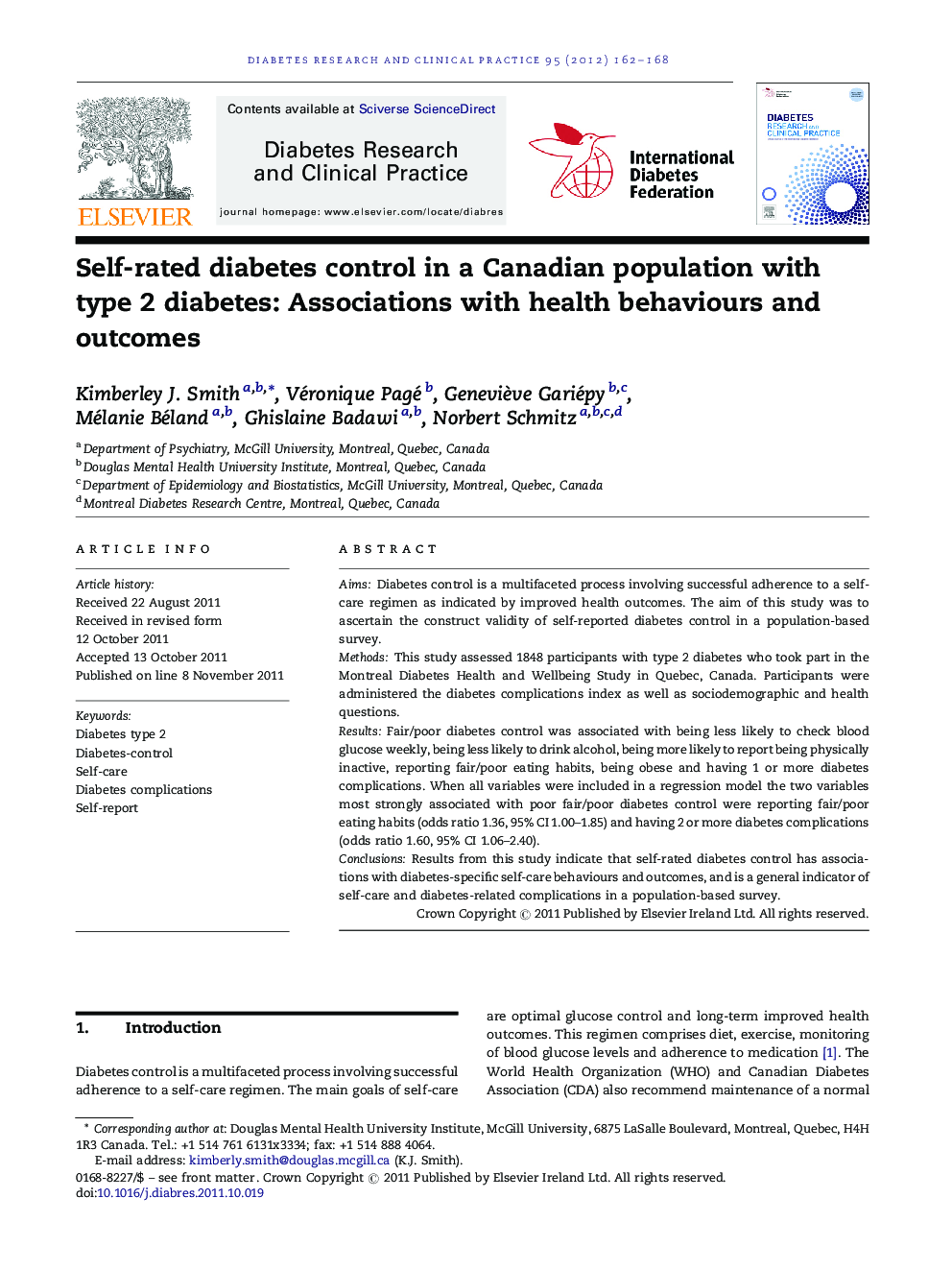| Article ID | Journal | Published Year | Pages | File Type |
|---|---|---|---|---|
| 2796957 | Diabetes Research and Clinical Practice | 2012 | 7 Pages |
AimsDiabetes control is a multifaceted process involving successful adherence to a self-care regimen as indicated by improved health outcomes. The aim of this study was to ascertain the construct validity of self-reported diabetes control in a population-based survey.MethodsThis study assessed 1848 participants with type 2 diabetes who took part in the Montreal Diabetes Health and Wellbeing Study in Quebec, Canada. Participants were administered the diabetes complications index as well as sociodemographic and health questions.ResultsFair/poor diabetes control was associated with being less likely to check blood glucose weekly, being less likely to drink alcohol, being more likely to report being physically inactive, reporting fair/poor eating habits, being obese and having 1 or more diabetes complications. When all variables were included in a regression model the two variables most strongly associated with poor fair/poor diabetes control were reporting fair/poor eating habits (odds ratio 1.36, 95% CI 1.00–1.85) and having 2 or more diabetes complications (odds ratio 1.60, 95% CI 1.06–2.40).ConclusionsResults from this study indicate that self-rated diabetes control has associations with diabetes-specific self-care behaviours and outcomes, and is a general indicator of self-care and diabetes-related complications in a population-based survey.
